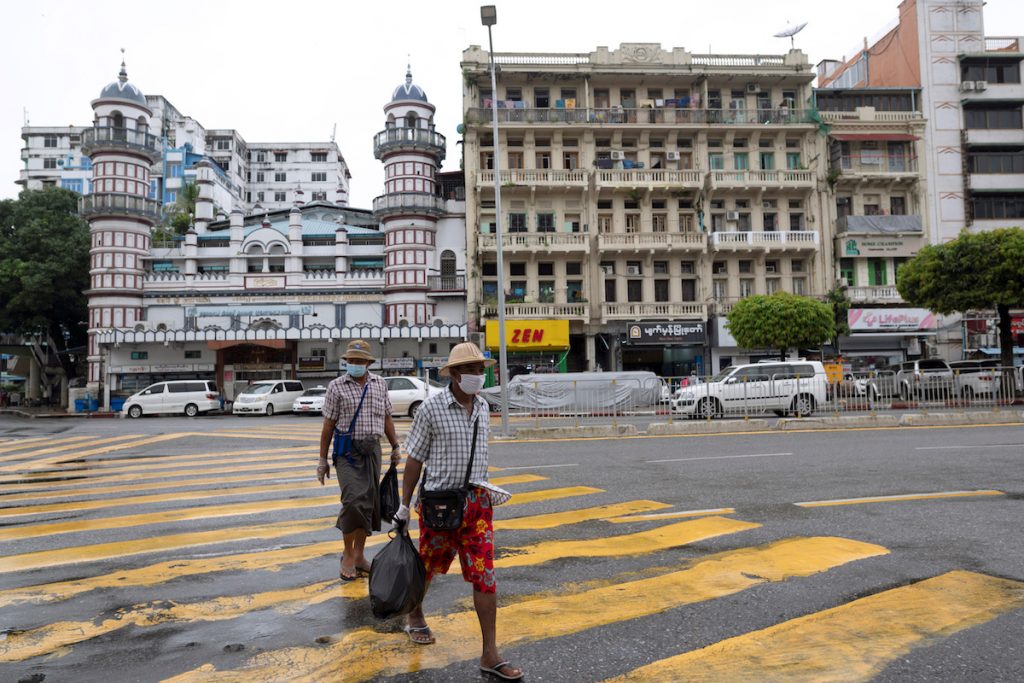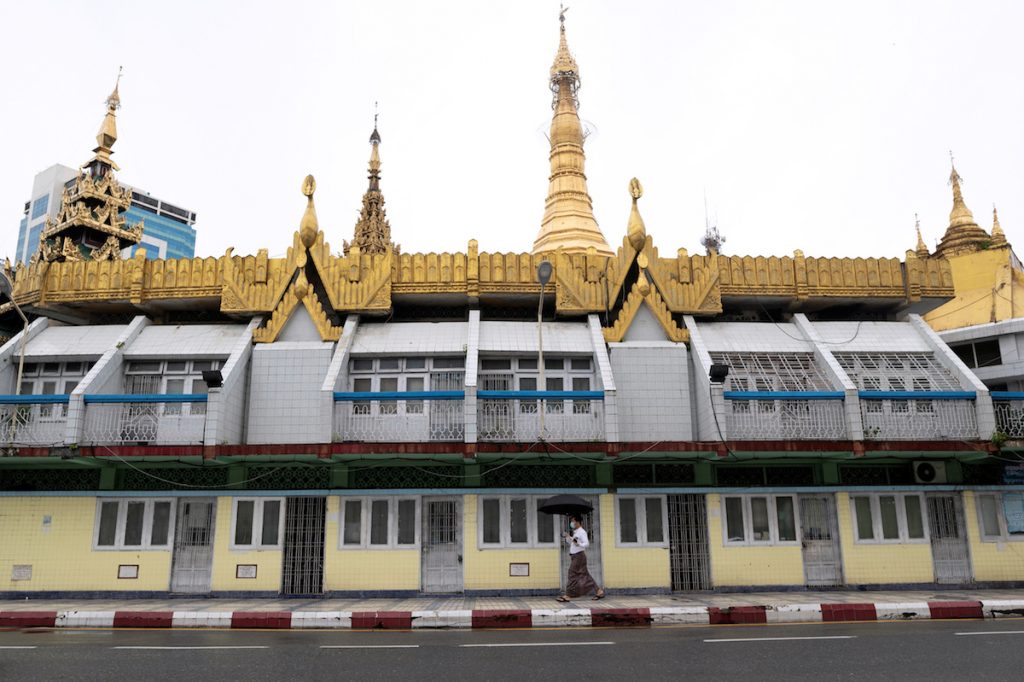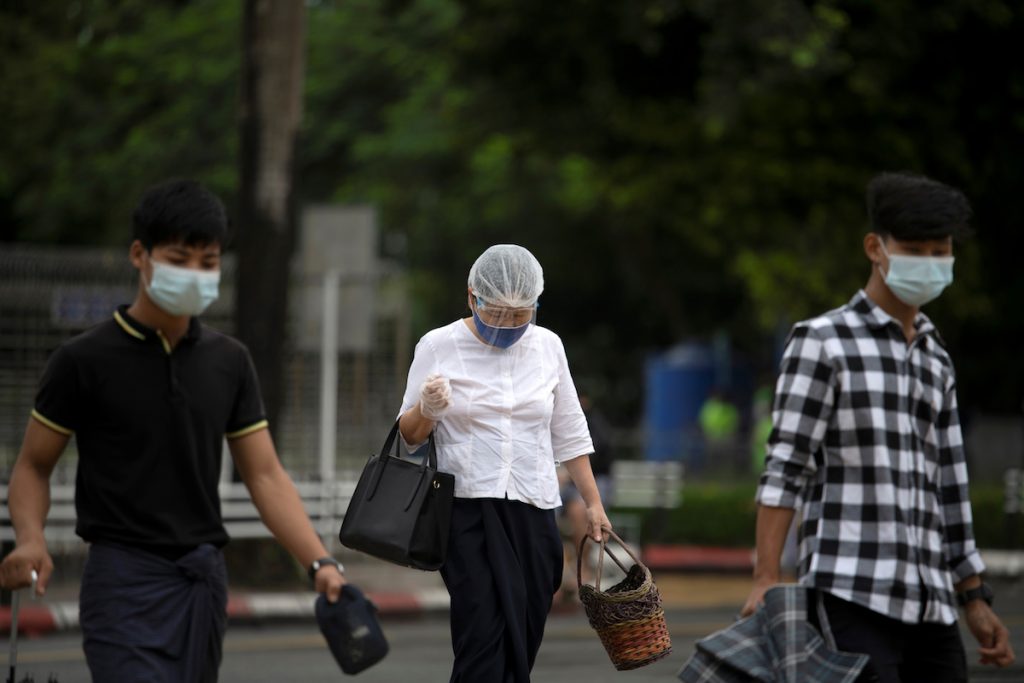
From a quarantine center in northern Myanmar, aspiring lawmaker Maw Htun Aung, wearing a bright yellow surgical mask, lays out his plan for an upcoming general election in a Facebook broadcast.
The 37-year-old is running his campaign from one of the state-run facilities in which about 45,000 people across the Southeast Asian country have been quarantined, one of a multitude of challenges confronting political parties as Myanmar pushes ahead with the Nov. 8 vote, despite a growing novel coronavirus outbreak.
Maw Htun Aung, serving mandatory quarantine after travelling within the country, is canvassing by telephone but says nothing can replace face-to-face contact with voters.
“I want to listen to their voices, expectations. I want to answer their questions and explain to them in person,” he said.
Myanmar’s coronavirus infections have rocketed from a few hundred in mid-August to more than 13,000, with more than 300 deaths, triggering strict lockdowns.
The outbreak has raised questions about the viability of the election as authorities pour resources into fighting the virus and lockdowns leave candidates unable to campaign as normal and international observers shut out of the country.
A government spokesman and representatives of the ruling National League for Democracy (NLD) did not answer telephone calls seeking comment.
Facebook campaign
The main challenger to leader Aung San Suu Kyi’s NLD, the military-backed Union Solidarity and Development Party, and 23 other opposition parties have called for the polls to be postponed. But Suu Kyi said in a broadcast this week the election was “more important than COVID“.
The parliamentary term is constitutionally bound to end on Jan. 31 and if no election is held before then it would be without a legislature, raising the possibility of a constitutional crisis.

Myanmar’s electoral agency said it would increase the number of polling stations to prevent overcrowding but it has given few other details about measures it is taking. A spokesman did not answer calls seeking comment.
With domestic travel and big gatherings banned and lockdowns in the commercial capital of Yangon as well as the western state of Rakhine, many candidates have moved campaigns online.
It is a far cry from the jubilant rallies during the 2015 election campaign that brought the NLD to power, the first civilian government in half a century.
Suu Kyi remains hugely popular and looks set to win, though probably without the same level of support she got in 2015, as frustration with her government grows in ethnic minority areas.
But Richard Horsey, a Myanmar-based analyst with the International Crisis Group, said the reliance on social media would give a “huge incumbent boost” to the NLD and Suu Kyi, whose Facebook page is the most popular in the country.
In places where the internet is limited or curbed, including Rakhine State, where authorities restricted access while government troops battle ethnic minority insurgents, little campaigning is going on.
“We have too many obstacles,” said Myo Kyaw, the general secretary of a party in the state, the Arakan League for Democracy. “We cannot go in person, we cannot communicate via social media.”
‘Not free and fair’
Flights into Myanmar are banned and the government has not said how foreign journalists can enter to cover the vote. The European Union has said it will not send an observer mission while the US-based Carter Center is hiring only Myanmar citizens.
Myanmar journalists are not exempt from stay-at-home orders and the government had announced no plans to help media cover the election, said Zeyar Hlaing, a Press Council member.

Ye Myo Hein, an analyst at the Tagaung Institute of Political Studies, said absence of observers could impact the polls’ fairness, while opposition candidates have complained that coronavirus restrictions are not being enforced fairly.
Monywa Aung Shin, a senior NLD official, stirred controversy by telling media that authorities would not punish his party’s supporters for rallying in breach of the ban. He did not answer phone calls seeking comment.
“We don’t even have a chance to put up signboards,” said Htoot May, an independent candidate in Yangon.
“It will not be free and fair,” she said.
Source: Licas Philippines
0 Comments